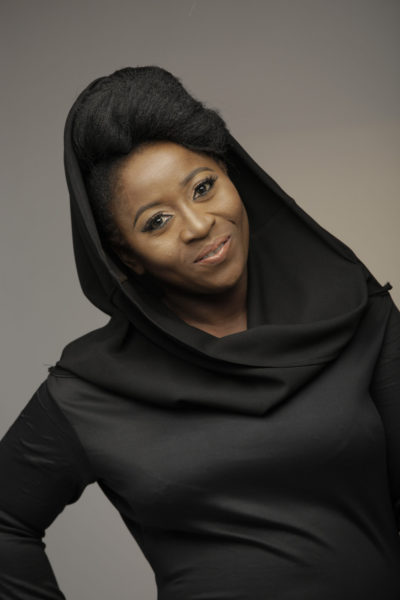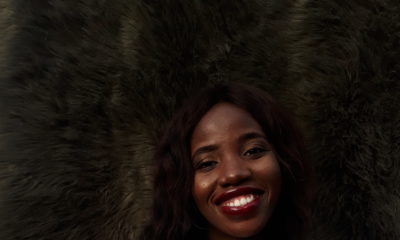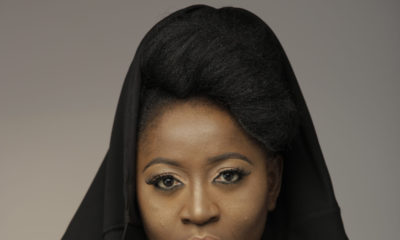Features
Atoke’s Awkward Banter: The Name They Call You at Home
 I met Baby at a birthday party hosted by her sisters. She was introduced to me as Baby, and there was no reason to ask for more details. Every guest that arrived called her Baby, that was that. Her name was Baby.
I met Baby at a birthday party hosted by her sisters. She was introduced to me as Baby, and there was no reason to ask for more details. Every guest that arrived called her Baby, that was that. Her name was Baby.
Then one afternoon, my friends invited me to tag along for a barbecue party hosted by their colleague called Nguyiman. We got into the subdivision where Nguyiman lived and I recognized it as the same one I’d been to a few weeks earlier. We pulled up to Nguyiman’s building and mused about the coincidence that my friend’s sister, Baby, lives here. Trot, trot, trot, up the stairs we went and Tosin knocked on Nguyiman’s door.
“Baby”
“Nguyiman”
Tosin and I said in unison, as the woman I knew as Baby opened the door. Tosin arched his brows. “Baby?”
As someone who probably has to live with this every day of her life, she responded, “Yes, that is the name they call me at home”
Since the inception of BellaNaija‘s Beyond The Three, I have become extremely fascinated by Nigerian names and how diverse and beautiful they are. We’ve featured Tanchit, Kada, Zichat, Kandyi and other really interesting names. I have come to realize how much of a bubble my life in South West Nigeria was. It reminded me of the many times someone said their name and I wondered if it was Nigerian. Unfortunately, due to the Lagos limitation, one may be prone to make ignorant comments like “Is that even a Nigerian name?”
For people with non-mainstream Nigerian names, I can only imagine the irritation they’d feel at being challenged at the validity of the Nigerianness of their name. Imagine telling someone your name is Chat and they tell you it is westernized. Then they go further to ask you for your real Nigerian name. My friend Mnena gets this all the time. One time someone asked her if the way she spelled her name was a funkified version of Nnena. They’d never heard the name Mnena before; their assumption was that she had abridged her name. There’s the other little thing about the pronunciation of her name. It’s that M and N sound that people don’t just get how to do, so they just call her Nnena.
It. Pisses. Her. Off.
The thing with names is that they’re such personal identifiers that they are often intrinsically tied to how people feel. And because it isn’t something you were consulted on at the time it was bestowed upon you, there’s the risk that you simply may not like the name you were given. It happens. However, when you’re old enough to change your name to something that you prefer, or maybe something that suits your personality better, you may run into some challenges. The challenges include, but are not limited to, people who insist on calling you the name your parents call you.
Also, what is it with people who argue with you over your name. You’re the owner of the name. You’re the one who wishes to be identified a certain way, but there’s always someone who would decide to spend time arguing with you on what your name is and what it should be. And I’m not talking about the ones who correct first-generation Americans on the proper pronunciation of their names o. I mean those people who will be arguing with you what your name is not your name.
You: My name is Mimi
Random person: What’s the full name?
You: Mimi
Random person: Ehn that’s the short form for what?
You: Mimi, is a Tiv name. That’s what it is.
No Sir/Ma’m. It’s not the short form for anything. She just told you her name. Accept it, call her by that name and keep it moving. Some people will go a step further to ask you if that’s your real name or an adopted name. Why? Why do you do it? Seriously.
Some people believe it’s a sign of closeness if they call you by the name you’re called at home. And it’s true, there are some times when the name you’re called indicates how far back someone has known you. It isn’t necessarily indicative of closeness, though. Sometimes it’s just a question of length of the relationship. For instance, my sister’s first name is Adeola. Her middle name is Adekemi. For some reason, my parents called her Adekemi and everyone at home calls her Kemi. When she went off to boarding school, accompanied by a bunch of her cousins, Kemi followed her to school – even though her class registers and all official documentation was Adeola Adekemi. By the time she got to University and shed off her cousins, she was back to being, officially, Adeola. So, now when someone says Kemi and they’re not family, we’re like, Ah, that’s a friend from Command.
Nobody drags real name or fake name with her, though, because both names are very Yoruba and very common (Isana eleta tingz), but not everyone is so lucky. Mnena’s first name is Jill and her middle name is Mnena. Having to navigate correcting the pronunciation of her name is so strenuous, she just tells you her name is Jill. But last year, standing at the bus stop on a rainy day, she met a Nigerian man, who after she introduced herself to him as Jill, decided to spend the next three minutes debating whether that was her real name.
Dearly beloved, it’s not so hard to call people what they tell you they want to be called, is it? Why are we so hung up on calling people the name they are called at home? Sometimes, names are associated with positive things; sometimes they’re not. Do you guys remember a wave of Pentecostalism that went through Nigeria when people with names that had Ifa and Sango prefixes were changing their names to Oluwa this and Oluwa that? If a Sangodara tells you they’d rather be identified as Oluwadara, why would you fight them on it? Sometimes we act as if we’re the ones who have been personally affronted when someone tells us they’ve named their child Jasmine Saffron Oluwaloleyimu. Why?
I think we should just let people enjoy things. Over the years, I’ve become more sensitive to being Yoruba, and in embracing my identity as a Yoruba woman, I’ve slowly shed my Hebrew first name. I write my name with the ami-ohun every time I can. I mostly prefer to be called by my oriki. That’s a personal choice because I’m in this state of discovering and embracing my heritage. Imagine if someone then trampled on that and asked me for an English name. URGGH!
Ps
Nguyiman tells work colleagues not to save her name as Baby on their phone, so they don’t get in trouble with their spouses.
PPs
My name at Starbucks is Sue. It’s just easier that way, for everybody involved.
So guys, what’s your name and what’s the name they call you at home? Let’s have fun with this. Do you have an interesting name? What’s the funniest reaction you’ve gotten to your name? Are you particular about what people call you? What are your thoughts on the general perception of Nigerian names. Do you believe that Nigerian names should have a modernized twist, especially within the context of globalization? Should we have names that are easier for westerners to say? (No! No! No!) If you’re like me who objects to that, how do you navigate working with foreigners who unintentionally ‘other’ you, simply because of your name? And last but not the least, if you find someone’s name interesting, what’s the first thing you say?
Peace, love and cucumber slices!




















